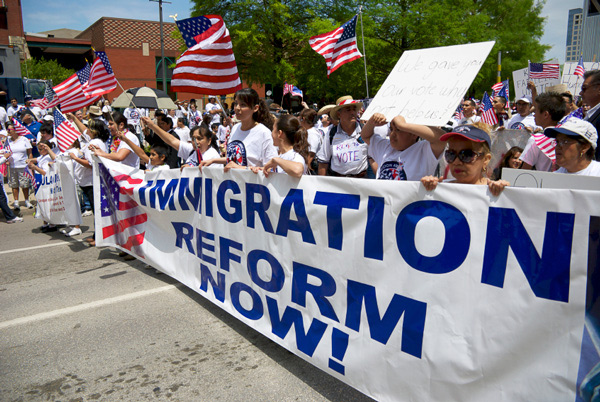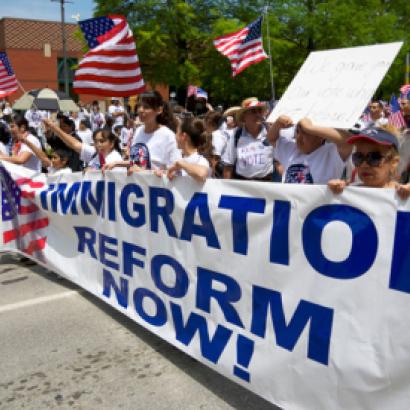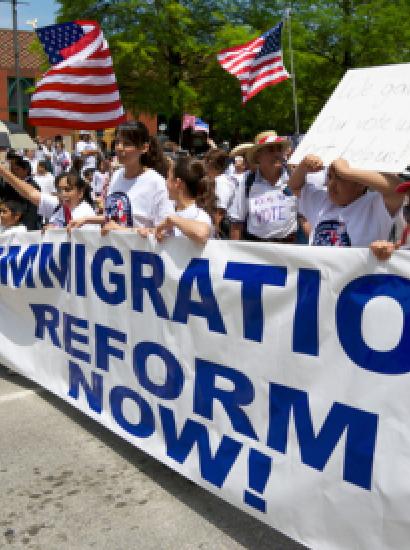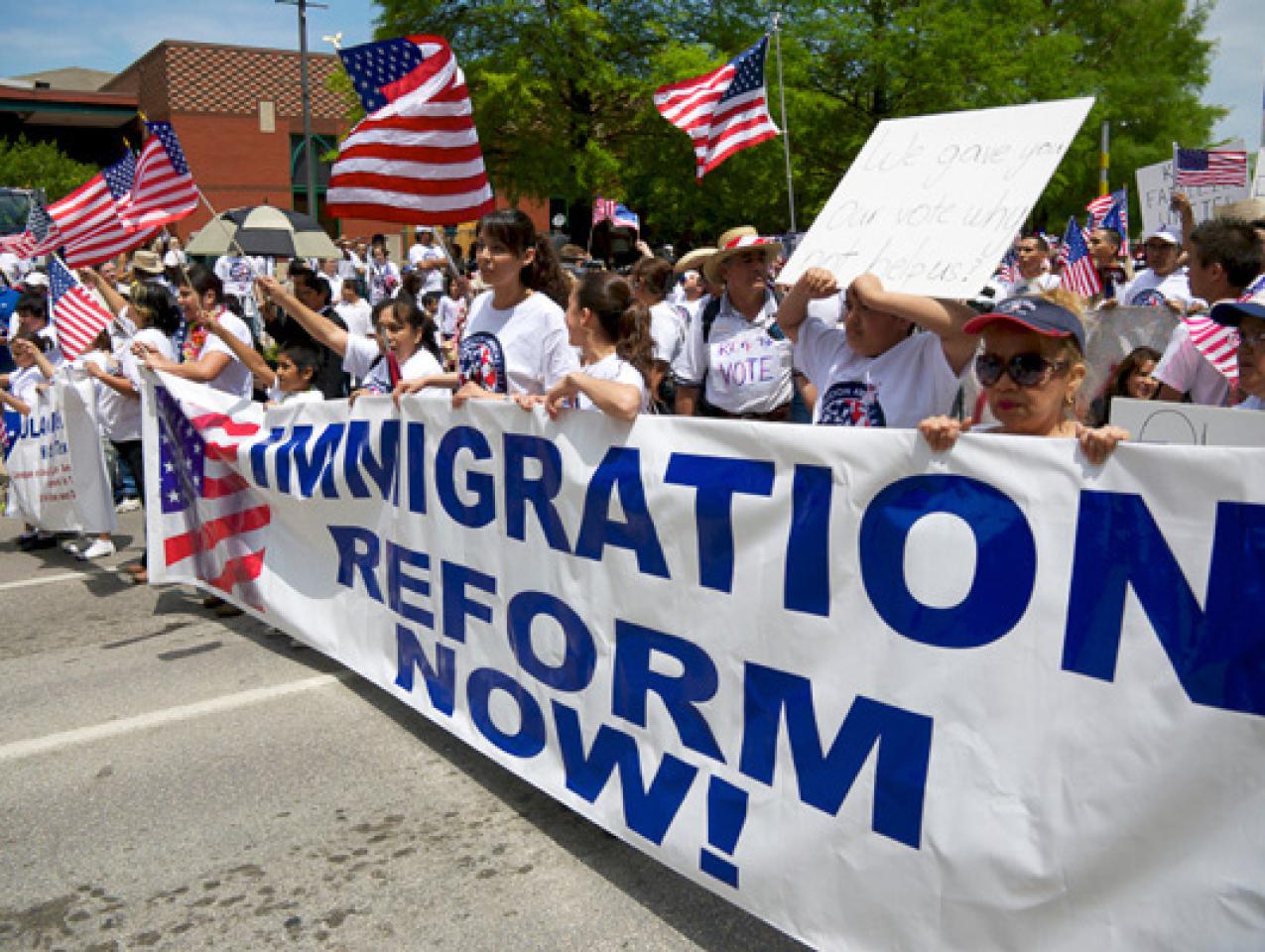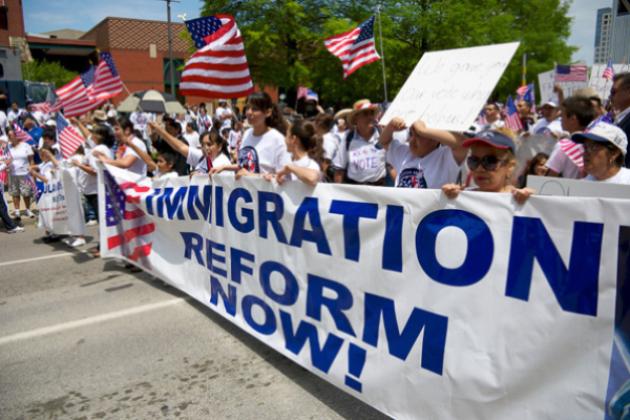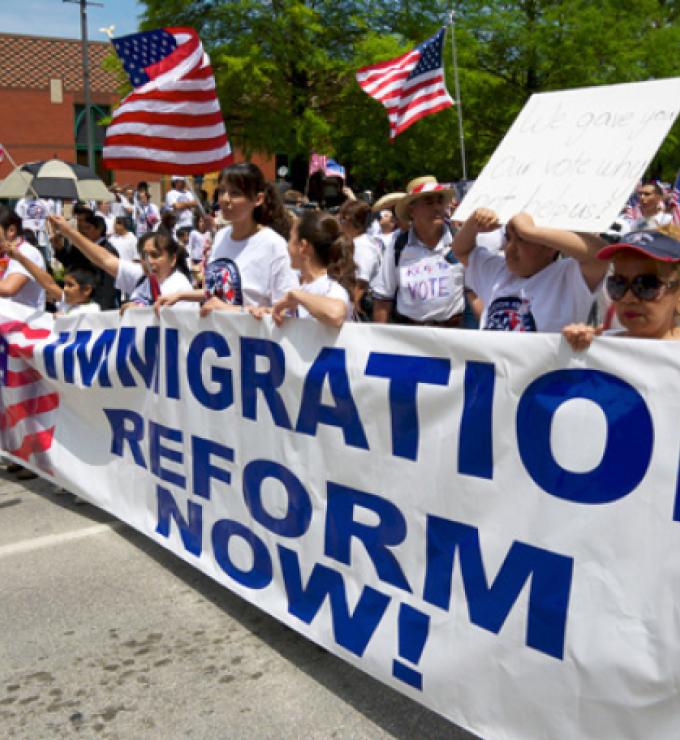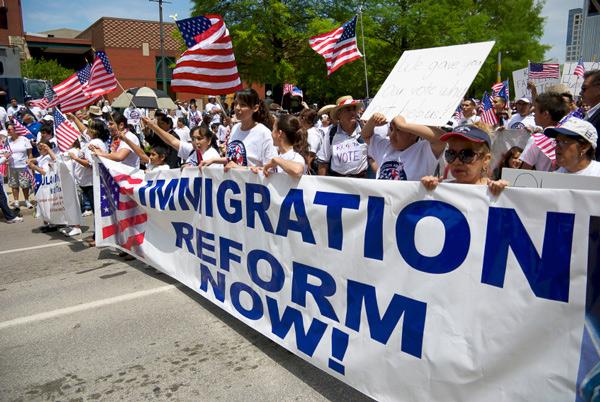- Law & Policy
President Donald J. Trump exercised his uncanny ability to suck the oxygen out of the room by his bold tweet last week that the United States should do away with “so-called Birthright Citizenship,” perhaps even by executive order, because it “costs our Country billions of dollars and is very unfair to our citizens.” Trump insists that children of illegal aliens born in the United States do not become citizens of the United States by their birth alone. The counterattack, mounted by anti-Trump crusaders like Bret Stephens of the New York Times, has been equally categorical: “Shame so-called conservatives and ‘originalists’ can't respect the plain text of the U.S. Constitution.”
The issue is a lot more complicated than either of these hyperbolic assertions. To put the problem in context, let’s start with the relevant text of the Constitution—Section 1 of the Fourteenth Amendment, adopted in 1868, which reads:
All persons born or naturalized in the United States, and subject to the jurisdiction thereof, are citizens of the United States and of the State wherein they reside. No State shall make or enforce any law which shall abridge the privileges or immunities of citizens of the United States; nor shall any State deprive any person of life, liberty, or property, without due process of law; nor deny to any person within its jurisdiction the equal protection of the laws.
In legal scholarship, the battle over the scope birthright citizenship is commonly said to turn on alternative readings of the cryptic phrase “subject to the jurisdiction thereof.” Defenders of birthright citizenship give this phrase a narrow reading. Thus Professor Josh Blackman of the South Texas College of Law, writing recently in the Wall Street Journal, insists that this phrase “subject to the jurisdiction thereof” applies chiefly to children of diplomats born in the United States, because they are generally immune from the enforcement of American laws. Originally, that phrase also excluded Native Americans born on tribal lands, who were considered citizens of their own sovereign nations but not of the United States. That exclusion was undone by the Indian Citizenship Act of 1924, as Congress has the power to extend citizenship to persons who do not receive it under Section 1 of the Fourteenth Amendment.
On the other side, Professor Matthew Spalding of Hillsdale College, also writing in the Wall Street Journal, insists that the phrase “subject to the jurisdiction of thereof” has a far broader reading that covers all individuals that did not owe “full political allegiance” to the United States because they owed allegiance elsewhere. He notes that the 1873 Slaughter-House Cases support that position when it says: “The phrase, ‘subject to its jurisdiction’ was intended to exclude from its operation children of ministers, consuls, and citizens or subjects of foreign States born within the United States.”
In truth neither of these warring interpretations makes a whole lot of sense. Blackman’s view would lead to the odd outcome that children of foreign diplomats born in the United States would become citizens if Congress by law lifted diplomatic immunity for infractions like parking tickets and petty theft. On the other side, it seems odd that the children of stateless aliens illegally present in the United States could become citizens of the United States because their stateless parents are not citizens or subjects of foreign nations.
Clearly, a more systematic interpretation is needed. The point of departure is the simple but powerful proposition that the first sentence in the Fourteen Amendment overrules the infamous 1857 decision of Dred Scott v. Sandford, in which Chief Justice Roger Taney, in some of the ugliest language ever written, denied that slaves of African descent could ever become citizens of the United States. Citizenship would, of course, entitle them to all the privileges and immunities of citizenship, such as the right to petition the national government, which are not extended to aliens who as “persons” residing in the United States receive only the more limited protections of the Due Process and Equal Protection Clauses.
The granting of citizenship is thus a preferred status, and the question is who gets it. Clearly the clause is not limited to slaves born in the United States, but also extends to persons of different nationalities born in the United States, e.g. Chinese, so long as they are subject to the jurisdiction of the United States. Nor does the Fourteenth Amendment, override prior citizenship law, based on prior British practice, which extends citizenship to children of American citizens (or even one citizen) born either in the United States or abroad, although persons born abroad have to take complex steps to “acquire citizenship” in the United States. Accordingly, it is undoubted that the child of any legal alien born in the United States is also a citizen of the United States. Thus the 1898 case of Wong Kim Ark emphatically held that the federal government could not exclude from entry to the United States a child born of Chinese parents lawfully resident in the United States when he sought to return from China. The obvious rationale for this result is that when the United States seeks to encourage aliens to take up residence in the United States, one powerful inducement is to secure the citizenship of their children at the time of birth. Yet there is not a single reference to the children of illegal aliens living within the United States in Wong Kim Ark. Now the rationale of Wong Kim Ark cuts the other way. By definition, the United States has not recruited illegal aliens, which is why they could be kept out of the United States before they arrive—or deported once their illegal status has been verified, perhaps after a legal hearing that meets the requirements of due process that attaches to all persons in the United States.
At this point, the discussion should turn from the words “subject to the jurisdiction thereof” to a reading of the Fourteenth Amendment in light of its broader context. It is a crude misunderstanding of “originalism” to assume that the meaning of a Constitutional provision is limited to an explication of its written text. Huge portions of constitutional doctrine have long been inferred by “necessary implication,” to lift a phrase from the 1871 Supreme Court decision Collector v. Day, which developed the judicial doctrine of sovereign immunity that exempted the salary of a state judicial officer from federal taxation. The introduction of sovereign immunity as a constitutional principle was only one of a large set of constitutional doctrines dealing with the scope of federal-state relationships. Another example of a doctrine read into the constitution involves the recognition of the state’s “police power”, which limits the protections of the Bill of Rights in the name of the “health, safety, morals, and general welfare” of the public at large, or the doctrine of unconstitutional conditions that makes it clear, for example, that the government cannot condition the use of public highways on the willingness of drivers to waive their Fourth Amendment rights against unreasonable searches and seizures. These doctrines, which determine the meaning of the Constitution from both text and by implication from background principles, were articulated long before the term “originalism” was introduced into the constitutional lexicon by the opening sentence of Professor Paul Brest’s influential 1980 article, “The Misconceived Quest for the Original Understanding.”
To see how this approach undercuts the case for birthright citizenship, let’s start with the question of whether a child born of a tourist lawfully in the United States on a limited time visa becomes a U.S. citizen at birth. The case does not fall within the first sentence of the Fourteenth Amendment because the mother of that child is a not a resident of any state at all. Her sojourner status leaves her a resident of whatever place she was before she entered the United States. The child’s residence follows its mother’s, so the child is not a citizen of any state or of the United States either. That proposition was virtually universally held before the adoption of the Fourteenth Amendment. Nothing in the text, structure, or history of the citizenship clause mandates a change in that meaning, which would only encourage opportunism on the part of parents who want their children to be American citizens. Conversely, it would be highly inappropriate for the United States to insist that any such child born in the United States becomes a citizen against the will of his or her parents.
The case for citizenship is made weaker if that sojourner has entered the U.S. illegally. No residency in any state is established. While it makes perfectly good sense to protect these persons from arbitrary arrest or arbitrary seizure of property under both the Due Process Clause and Equal Protection Clause, it makes no sense to give them additional rights that citizens receive to occupational freedom or the ability to acquire property under the Privileges or Immunities Clause. It is a general maxim of law that no person should be able to profit by his own wrong. That principle should be read sensibly into the Fourteenth Amendment to prevent the profit that parents hope to obtain for their children by illegally entering or remaining in the United States.
It may be unwise and improper to change this rule given that it has been respected in practice for 100 years or longer. Yet that argument is only half correct. It would be a tragedy of inexcusable proportions to strip citizenship from the children of illegal aliens on whom it has already been conferred. The dislocations that would result are utterly unacceptable. But that argument does not apply going forward, where it can be made perfectly clear that the children of illegal aliens will not acquire citizenship status but are instead subject to the same immigration rules that govern their parents. At that point, there would be no odd separation between the fully protected status of the child and the utterly unprotected status of the parents.
Quite simply, the general principles of international law that reject birthright citizenship were not abrogated by the Fourteenth Amendment. To be sure, Congress could decide by statute to confer citizenship on the children of illegal aliens, just as it did with respect to Native Americans in 1924. But that is a tough policy decision; it is not a command of the citizenship clause of the Fourteenth Amendment.







